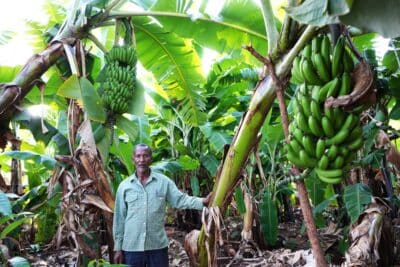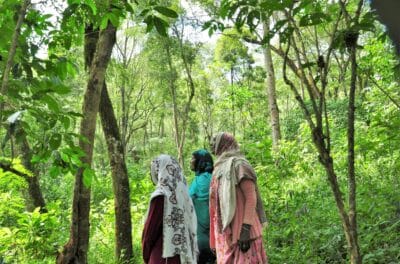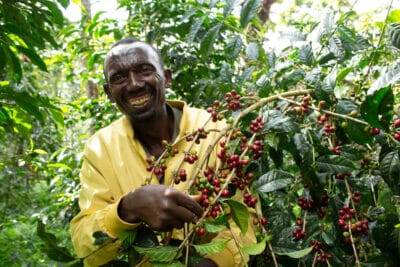Stories
Ethiopia
26 November 2025
Meet Abida Gutu: coffee exporter, entrepreneur, conservationist
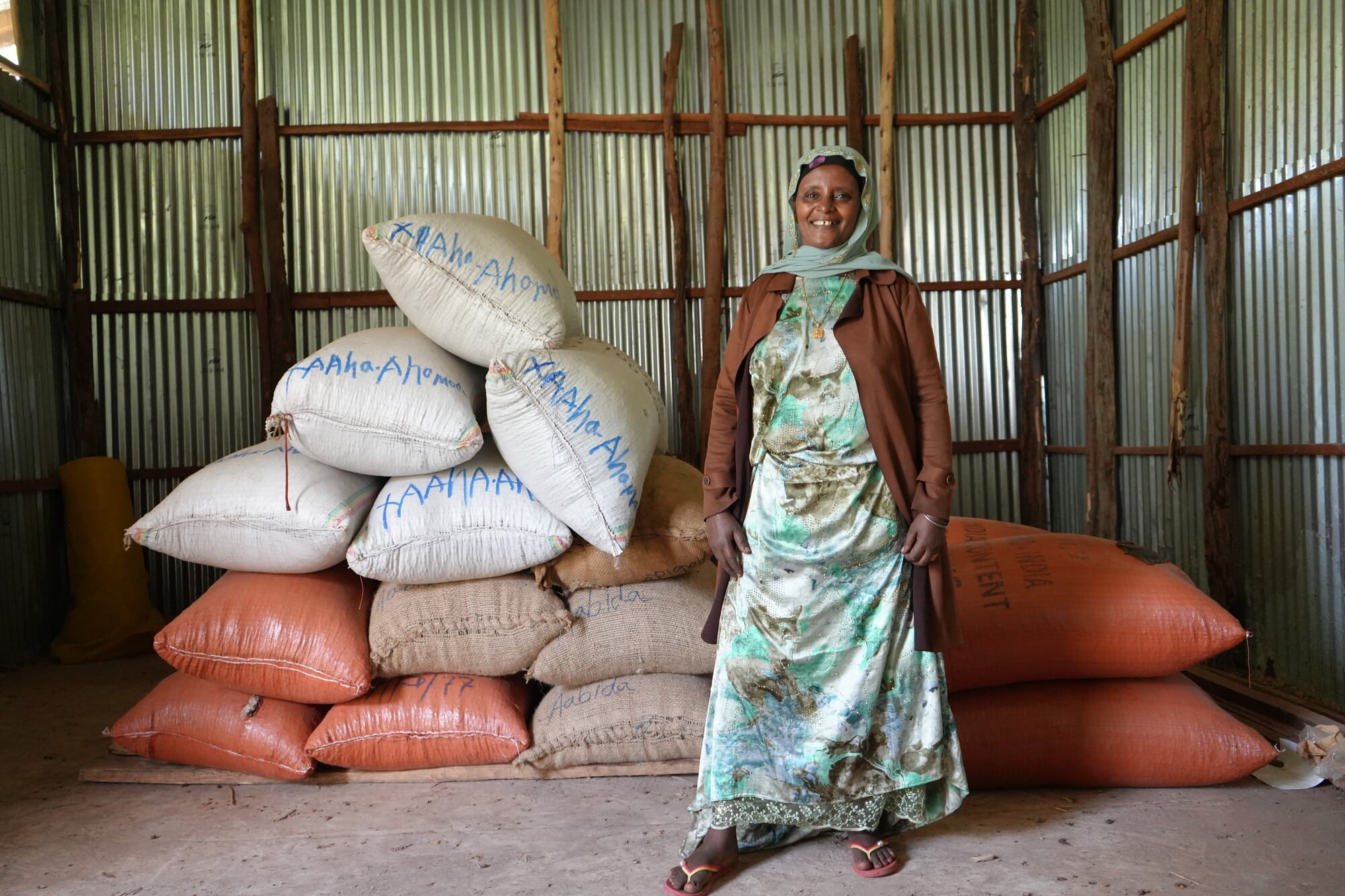
For more than a decade, Abida Gutu harvested coffee growing wild in the forests of Ethiopia’s Bale Eco-region.
Like many in the region, she sold forest coffee to generate income, although the returns were low.
Despite her experience, she lacked access to the training, tools and markets needed to consistently produce a high-quality product and secure better returns.
This began to change when her cooperative, the Gutiti Participatory Forest Management Cooperative (PFMC), started working with Farm Africa through a programme that aimed to protect the globally significant forests of the region by strengthening forest-friendly livelihood opportunities.
Through Farm Africa and SOS Sahel Ethiopia’s Forests for Sustainable Development (FSD) project, funded by the Royal Norwegian Embassy in Ethiopia, Abida and other Gutiti PFMC coffee producers received training to improve the quality and handling of their coffee.
544 kg
Abida produced 544 kg of quality coffee last year.
They learned techniques such as selective harvesting, careful sorting and improved drying methods to significantly increase the value of their forest coffee.
Alongside this technical support, the project helped connect the producers, through their cooperatives, with international buyers interested in sustainably sourced forest products, opening access to higher-value markets.
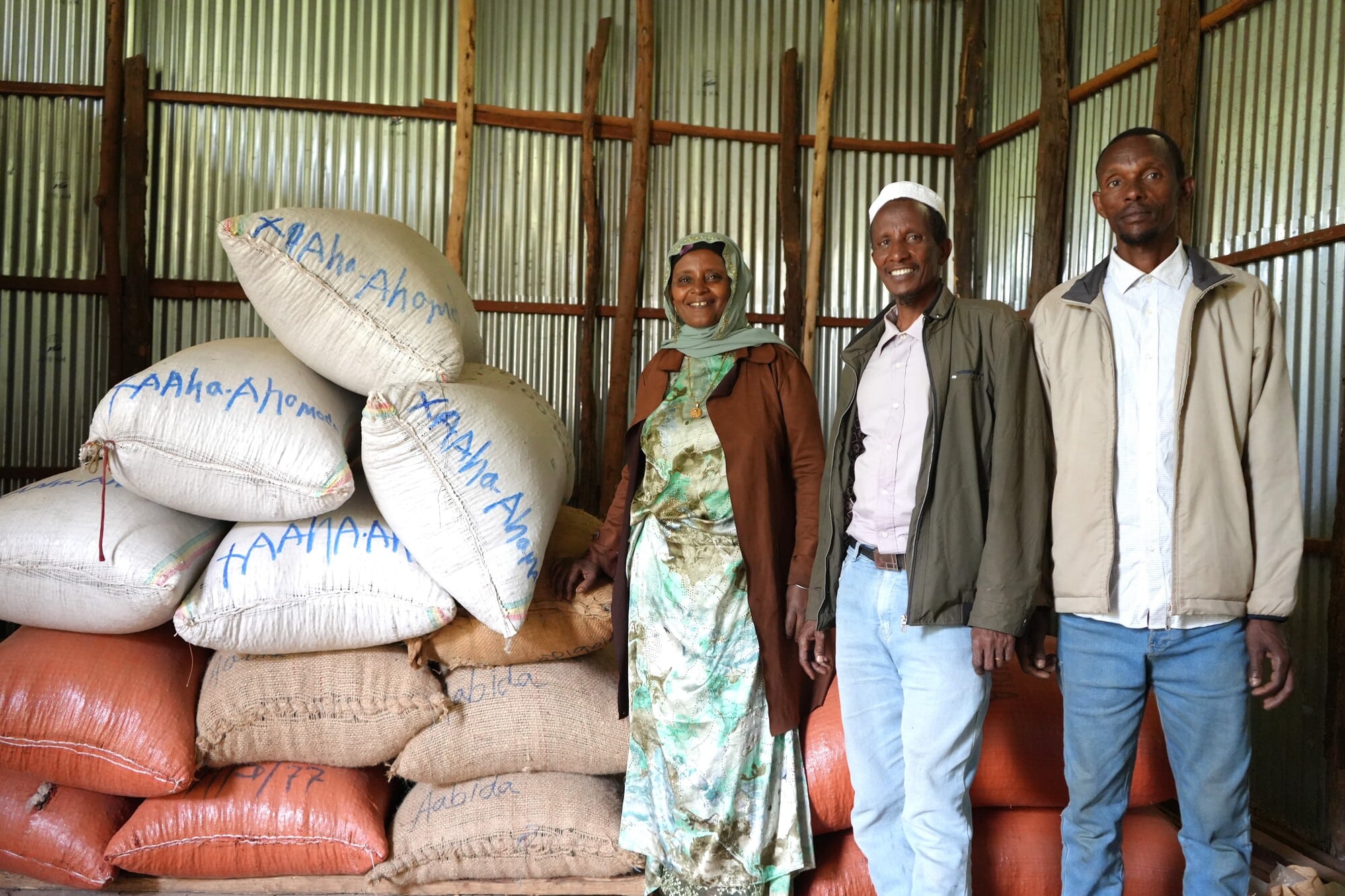
Abida Gutu (left) with fellow forest coffee producers.
The impact on Abida’s production and market access has been substantial. “It has been more than 12 years since I started producing forest coffee, but I managed to produce quality coffee only for the last seven years.
“In 2024, I produced a total volume of 1295 kg forest coffee, with 544 kg of this graded as quality coffee. I supplied 470 kg of this quality grade coffee to the international market. The remaining coffee was sold in the local and national market.”
It wasn’t Abida’s first international sale, but it’s her largest yet. “This is my second time to supply coffee to the international market. The first time I produced nearly 204 kg of coffee cherry” she explains.
“I believe this kind of practice contributes to the conservation of biological diversity.”
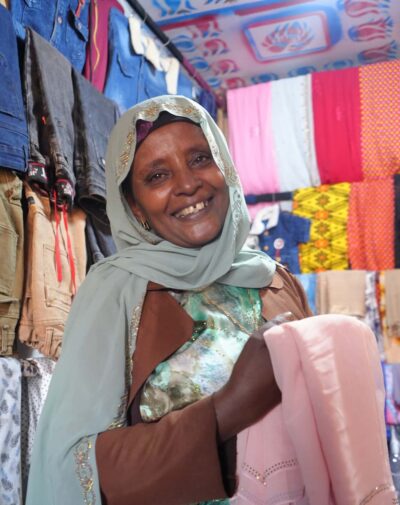
Abida Gutu
Forest coffee producer
A key part of the participatory forest management cooperatives’ approach is their commitment to sustainable forest management. As a committee member of Gutiti cooperative, Abida explains:
“In our bylaw it’s not allowed to conduct intensive cultivation inside the natural forest, where the coffee naturally grows. Instead, we are encouraged to increase our incomes by producing high-quality coffee that will secure premium prices.
“I believe this kind of practice contributes to the conservation of biological diversity.”
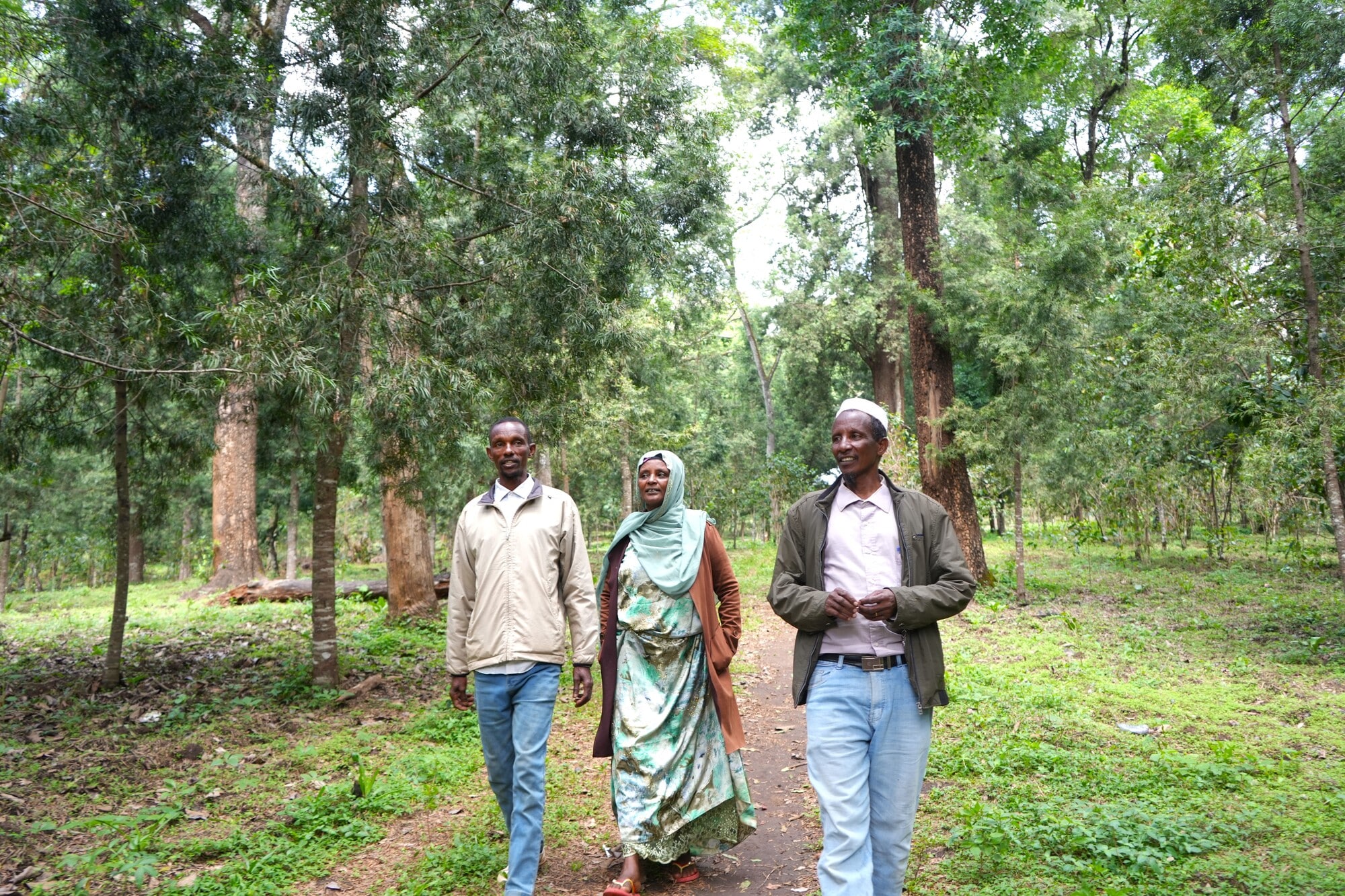
Collecting only red, ripe coffee cherries is one example of the group’s forest-friendly practices. “When we collect only red ripe cherries, it helps sustain the productivity of the coffee yearly and reduces damage to the plant as a result of harvesting.”
The improved financial returns have enabled Abida to make changes beyond her coffee production. “With the net income I earned, I have made a lot of improvements for my family and second business.
“For example, I used to sell clothes in an open market where I was exposed to dust, scorching sun and rain. But now, I have managed to rent a shop so that I can stay healthy and above all attract more customers.”
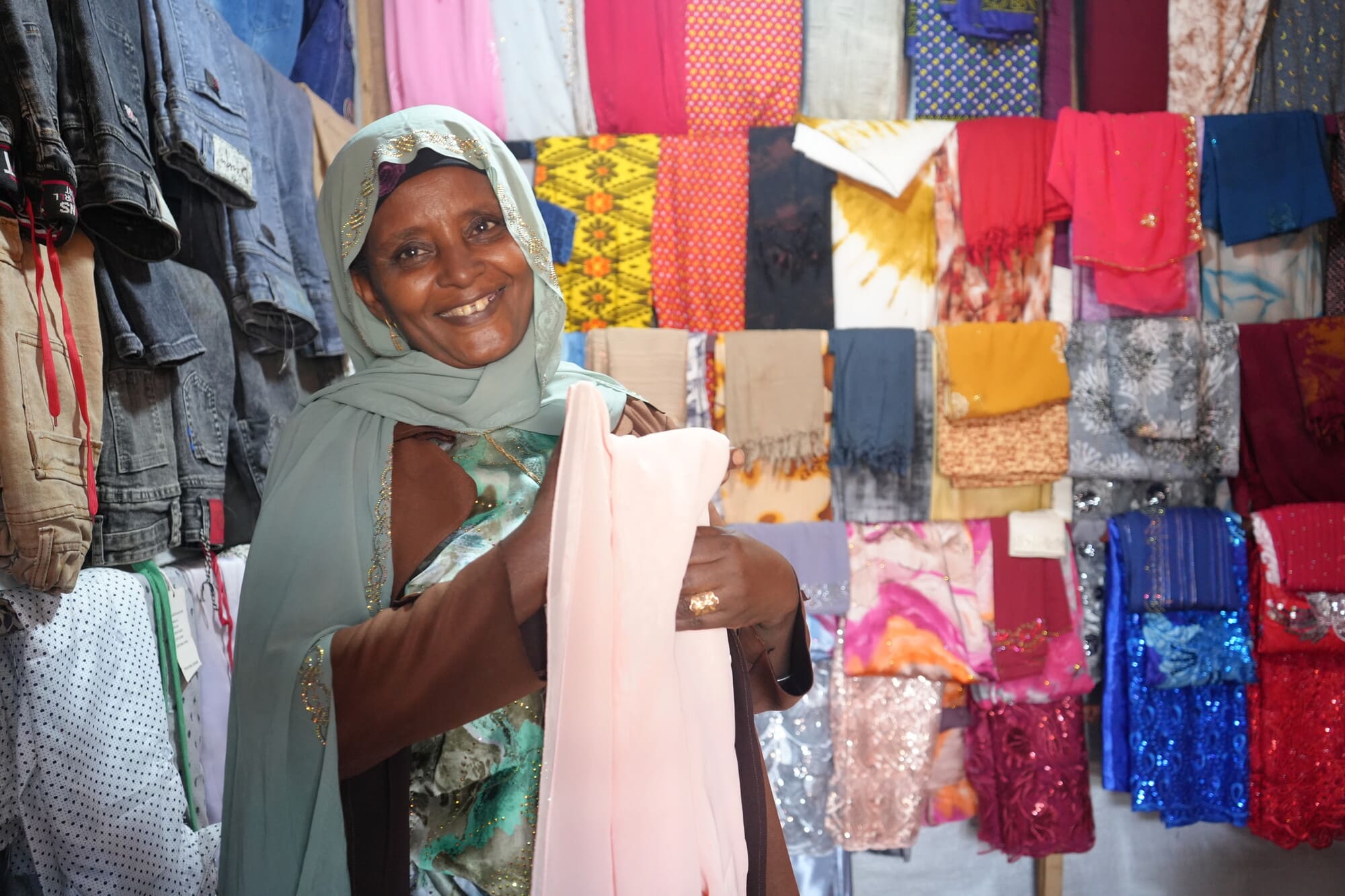
Her progress reflects the wider achievements of the Forests for Sustainable Development programme.
By helping forest-dependent communities to benefit economically from the forest without degrading it, the programme has reduced deforestation rates in the programme area by 35% in three years. At the same time, average household earnings have increased by 79%.
For households like Abida’s, this charts a sustainable pathway for long-term livelihood improvement.
Learn more about the ways the Forests for Sustainable Development programme is helping local people improve their incomes while protecting vital forests:
Country
Ethiopia
Key focus areas
Act on climate change
Increase incomes
Protect ecosystems
The Forests for Sustainable Development programme: stories of impact
This publication captures the progress of the Forests for Sustainable Development programme as it partners with communities in the ecologically critical Bale Eco-region of Ethiopia to balance local livelihood needs with the protection of globally significant natural forests. Alongside the impact summary is a collection of stories from the community and an overview of key lessons learnt along the way.
Download (2.86mb)
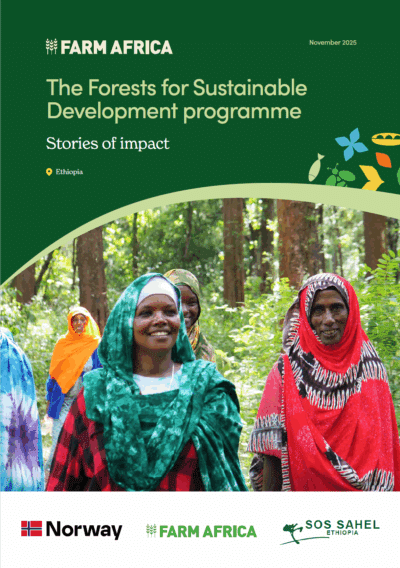
Country
Ethiopia
Key focus areas
Act on climate change
Increase incomes
Protect ecosystems
